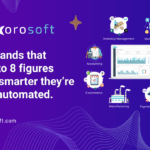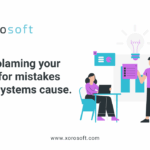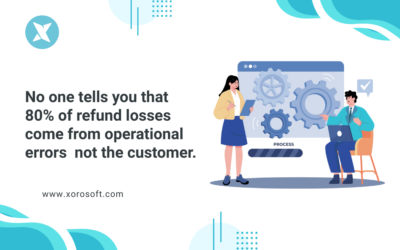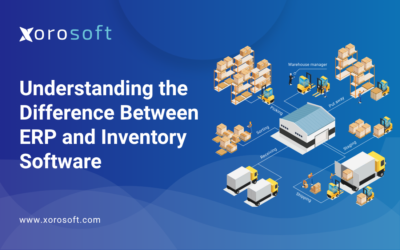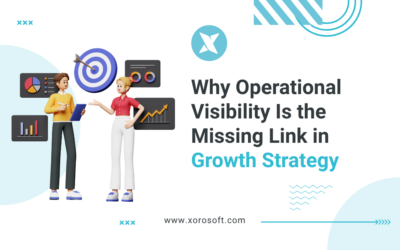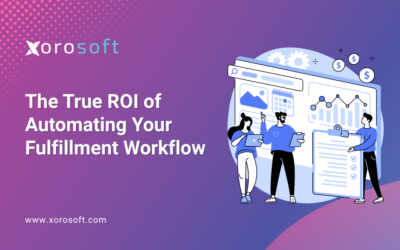
Introduction to Compliance and Regulatory Reporting
As businesses operate in an increasingly complex regulatory environment, compliance and regulatory reporting have become crucial aspects of their operations. Compliance refers to the adherence to laws, regulations, and industry standards, while regulatory reporting involves the submission of accurate and timely reports to regulatory authorities. Meeting these requirements is not only essential for legal compliance, but it also helps businesses maintain their reputation and avoid costly penalties.
Understanding ERP Systems and Their Benefits
An Enterprise Resource Planning (ERP) system is a software solution that integrates various business processes, such as finance, supply chain, human resources, and customer relationship management, into one comprehensive platform. The primary goal of an ERP system is to streamline operations, improve efficiency, and provide real-time visibility into key business metrics. By centralizing data and automating workflows, ERP systems empower businesses to make informed decisions and respond quickly to changing market conditions.
Introducing XoroERP: A Comprehensive ERP Solution
XoroERP, developed by Xorosoft, is an industry-leading ERP solution designed to address the specific needs of businesses in compliance and regulatory reporting. With its robust features and intuitive interface, XoroERP offers a comprehensive suite of tools to streamline the compliance process and facilitate regulatory reporting. By leveraging the power of XoroERP, businesses can ensure accuracy, efficiency, and compliance in their operations.
The Advantages of Implementing an ERP System for Compliance and Regulatory Reporting
Implementing an ERP system like XoroERP can bring numerous advantages to businesses when it comes to compliance and regulatory reporting. Firstly, the integration of various business processes into a single platform allows for better data visibility and control. This means that businesses can easily track and monitor compliance-related activities, ensuring that all necessary requirements are met.
Secondly, an ERP system automates many manual tasks involved in compliance and regulatory reporting. This automation reduces the risk of human error and improves the accuracy and timeliness of reports. With XoroERP, businesses can generate reports automatically based on real-time data, eliminating the need for time-consuming manual data entry and validation.
Furthermore, an ERP system provides a centralized repository for all compliance-related information. This not only improves data accessibility but also enhances collaboration among different departments. With XoroERP, stakeholders can access relevant data and reports in real-time, enabling better decision-making and faster response to compliance-related issues.
The Challenges of Implementing an ERP System for Compliance and Regulatory Reporting
While the benefits of implementing an ERP system for compliance and regulatory reporting are significant, businesses should also be aware of the challenges they may encounter during the implementation process. One of the main challenges is the need for careful planning and customization. Each business has unique compliance requirements, and the ERP system needs to be tailored to meet these specific needs. Failure to adequately plan and customize the system can lead to inefficiencies and difficulties in meeting compliance obligations.
Another challenge is the integration of existing systems with the new ERP system. Many businesses already have various software solutions in place for different functions. Integrating these systems with XoroERP requires careful consideration and technical expertise to ensure seamless data flow and avoid disruptions in operations.
Additionally, training and change management are crucial aspects of successful ERP implementation. Businesses need to invest in training programs to ensure that employees understand how to use the new system effectively. Resistance to change can also arise during the implementation process, and businesses must address this through effective change management strategies.
Key Features of XoroERP for Compliance and Regulatory Reporting
XoroERP comes equipped with a range of key features specifically designed to enhance compliance and regulatory reporting. These features include:
- Document Management: XoroERP provides a centralized repository for all compliance-related documents, allowing for easy storage, retrieval, and version control. This ensures that businesses have a complete audit trail and can quickly access the necessary documentation during regulatory inspections.
- Audit Trail: XoroERP tracks all changes made to compliance-related data, providing a comprehensive audit trail. This feature enhances transparency and accountability, allowing businesses to demonstrate their compliance efforts to regulatory authorities.
- Automated Reporting: XoroERP automates the generation of compliance reports, eliminating the need for manual data entry and validation. This feature ensures accuracy and timeliness in reporting, reducing the risk of errors and penalties.
- Alerts and Notifications: XoroERP can send automated alerts and notifications to relevant stakeholders, ensuring that they are informed about upcoming compliance deadlines or changes in regulatory requirements. This feature helps businesses stay proactive and avoid compliance-related issues.
How XoroERP Can Streamline Inventory Management for Compliance and Regulatory Reporting
Inventory management is a critical aspect of compliance and regulatory reporting, particularly in industries that deal with controlled substances or perishable goods. XoroERP offers advanced inventory management capabilities to help businesses streamline their compliance efforts in this area.
With XoroERP, businesses can track inventory levels in real-time, ensuring that they meet regulatory requirements for stock control. The system provides accurate visibility into stock levels, expiry dates, and batch numbers, enabling businesses to maintain compliance with strict regulations.
XoroERP also enables businesses to implement robust inventory tracking and traceability mechanisms. This allows for quick identification of products in the event of a recall or compliance issue. By having a comprehensive record of product movements and transactions, businesses can easily demonstrate compliance to regulatory authorities.
Furthermore, XoroERP offers features such as automated replenishment and order management, which help businesses optimize their inventory levels and avoid overstocking or stockouts. By ensuring optimal inventory levels, businesses can minimize compliance risks and maintain regulatory compliance.
The Role of XoroERP in Accounting and Financial Reporting for Compliance
Accounting and financial reporting are crucial aspects of compliance, as businesses need to accurately record and report their financial transactions. XoroERP provides robust accounting functionalities that facilitate compliance in this area.
XoroERP enables businesses to automate the recording and tracking of financial transactions, ensuring accuracy and timeliness in financial reporting. The system integrates with various financial modules, such as general ledger, accounts payable, and accounts receivable, to provide a comprehensive view of the financial health of the business.
With XoroERP, businesses can generate financial reports, such as balance sheets and income statements, automatically based on real-time data. This eliminates the need for manual data entry and reconciliation, reducing the risk of errors and ensuring compliance with financial reporting requirements.
Additionally, XoroERP offers features such as tax management and compliance reporting, which help businesses meet their tax obligations. The system calculates taxes accurately and generates tax reports that comply with the relevant tax regulations. This reduces the risk of non-compliance and potential penalties.
Evaluating the Implementation Process of XoroERP for Compliance and Regulatory Reporting
The implementation process of XoroERP for compliance and regulatory reporting requires careful evaluation and planning. Businesses should consider the following factors to ensure a successful implementation:
- Needs Assessment: Before implementing XoroERP, businesses should conduct a thorough needs assessment to identify their specific compliance requirements. This assessment helps determine the modules and functionalities of XoroERP that are most relevant to the business.
- Customization and Configuration: XoroERP should be customized and configured to meet the unique compliance needs of the business. This involves mapping existing processes and workflows to the system and ensuring that the necessary data fields and validation rules are in place.
- Data Migration: Businesses need to migrate their existing compliance-related data to XoroERP. This requires careful planning and execution to ensure data integrity and accuracy. Data migration should be conducted in a phased approach, allowing for testing and validation at each stage.
- Training and Change Management: Employees should receive comprehensive training on how to use XoroERP for compliance and regulatory reporting. Training programs should cover both technical aspects of the system and the business processes related to compliance. Change management strategies should also be implemented to address any resistance to change.
The Cost Considerations of Implementing an ERP System like XoroERP
Implementing an ERP system like XoroERP involves both upfront and ongoing costs. Businesses need to consider the following cost factors when evaluating the implementation of XoroERP for compliance and regulatory reporting:
- Software Licensing: XoroERP requires a software license, which can vary depending on the number of users and modules chosen. Businesses should consider the scalability of the license to accommodate future growth.
- Hardware and Infrastructure: XoroERP may require additional hardware and infrastructure to support its implementation. This includes servers, storage devices, and network infrastructure. Businesses should assess their existing infrastructure and budget for any necessary upgrades.
- Implementation Services: Businesses may need to engage implementation services provided by Xorosoft or third-party consultants. These services cover activities such as customization, configuration, data migration, and training. The cost of implementation services should be factored into the overall implementation budget.
- Ongoing Support and Maintenance: XoroERP requires ongoing support and maintenance to ensure its optimal performance. This includes software updates, bug fixes, and technical support. The cost of support and maintenance should be considered as part of the total cost of ownership.
While implementing an ERP system like XoroERP involves significant costs, businesses should also consider the potential cost savings and efficiency gains in the long run. By streamlining compliance and regulatory reporting processes, businesses can reduce the risk of non-compliance and associated penalties, ultimately saving money and preserving their reputation.
Conclusion: Is XoroERP the Right Choice for Your Business’s Compliance and Regulatory Reporting Needs?
Implementing an ERP system like XoroERP can bring numerous benefits to businesses in compliance and regulatory reporting. The robust features of XoroERP, such as document management, automated reporting, and inventory management capabilities, empower businesses to streamline their compliance efforts and ensure accuracy and timeliness in regulatory reporting. However, businesses should also consider the challenges and cost considerations associated with implementing an ERP system. Careful planning, customization, and change management are crucial for successful implementation. By evaluating their specific compliance requirements and assessing the potential benefits and costs, businesses can determine whether XoroERP is the right choice for their compliance and regulatory reporting needs.
To explore the features and capabilities of XoroERP further, I invite you to book a demo with Xorosoft. Discover how XoroERP can transform your compliance and regulatory reporting processes, improve efficiency, and ensure compliance in today’s complex business landscape. Book your demo with Xorosoft today and take the first step towards achieving seamless compliance and regulatory reporting.
